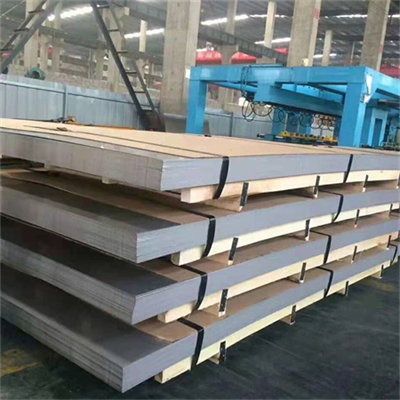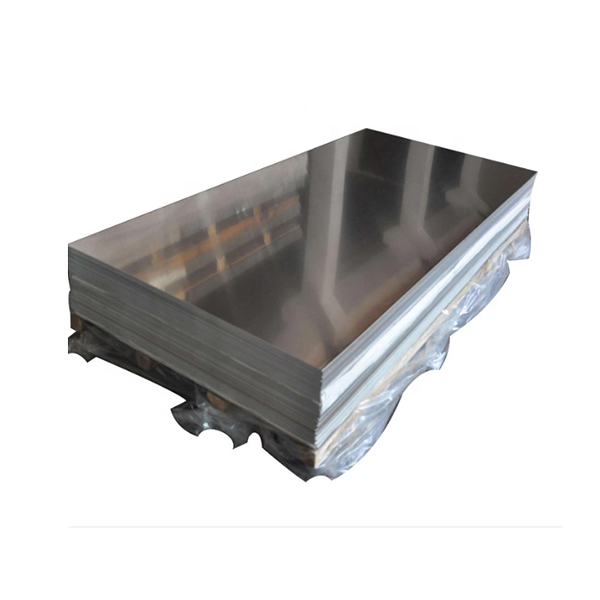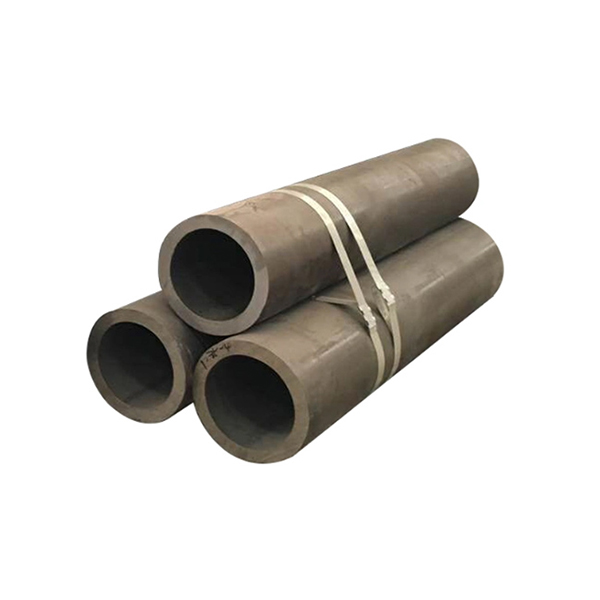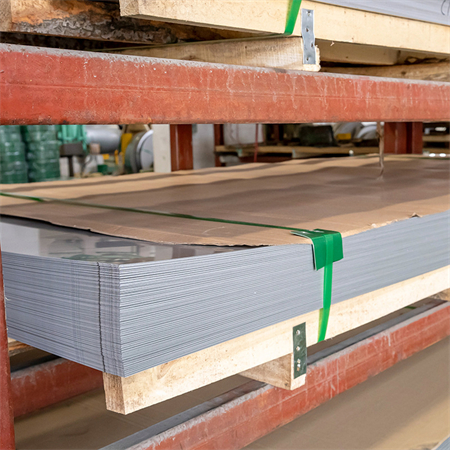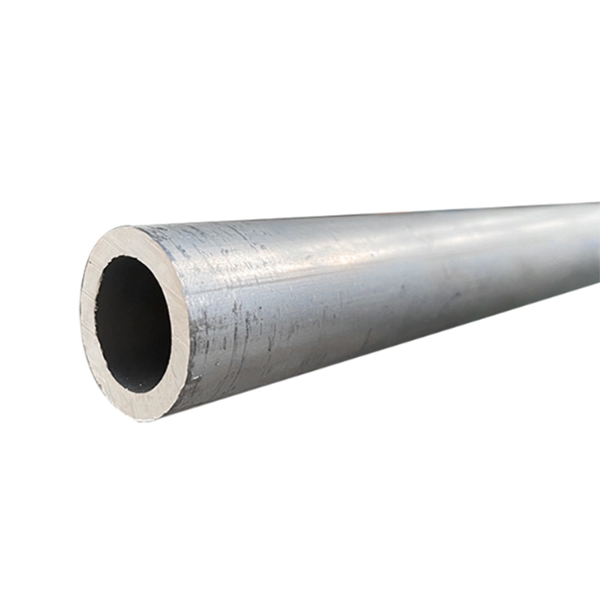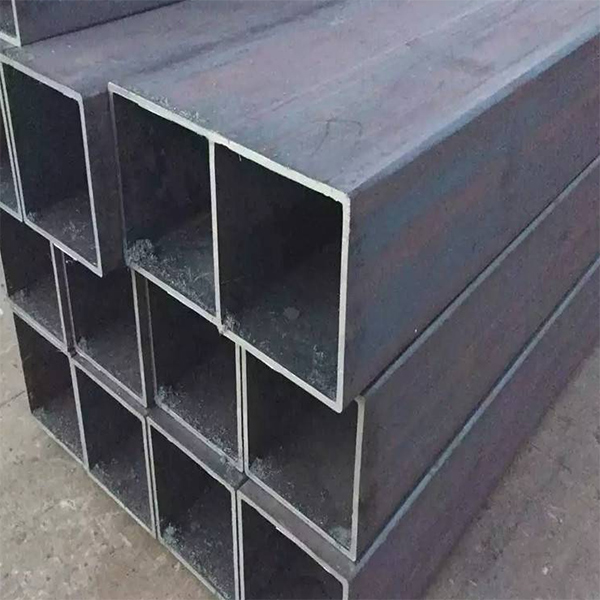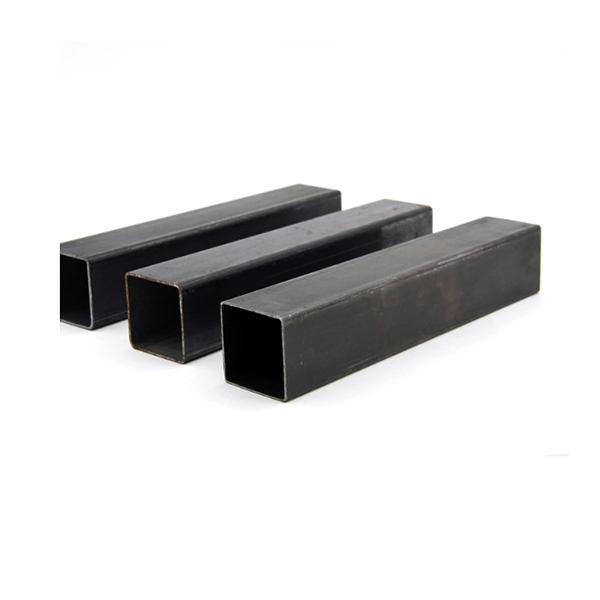Hot Sale For Steel Coil/Sheet
Mechanical properties of
(1) Tensile strength (σb) : the maximum force (Fb) of the specimen during tensile fracture is divided by the stress (σ) of the original cross-sectional area (So) of the specimen. The unit of tensile strength (σb) is N/mm2 (MPa). It represents the maximum capacity of a metal material to resist damage under tension. Where: Fb-- the maximum force borne by the specimen when it breaks, N (Newton);So-- Original cross-sectional area of the sample, mm2.
(2) Yield point (σ S) : the yield point of a metal material with a yield phenomenon. It is the stress at which the specimen can continue to stretch without increasing the force (keeping constant) during tensile process. In case of force decline, upper and lower yield points should be distinguished. The unit of yield point is NF/mm2 (MPa). The upper yield point (σ SU) is the maximum stress before the specimen yields and the force drops for the first time. Lower yield point (σ SL) : the minimum stress in the yield stage when the initial transient effect is not considered. Where Fs is the yield force (constant) of the specimen during tensile process, N (Newton) So is the original cross-sectional area of the specimen, mm2.
(3) Elongation after fracture :(σ) in tensile test, the elongation is the percentage of the length increased by the standard distance of the specimen after fracture compared with the length of the original standard distance. The unit is %. Where: L1-- the distance of the specimen after breaking, mm; L0-- Original distance length of sample, mm.
(4) Reduction of section :(ψ) in tensile test, the percentage of the maximum reduction of the cross-sectional area at the reduced diameter of the specimen after being pulled and the original cross-sectional area is called reduction of section. ψ is expressed in %. Where, S0-- the original cross-sectional area of the sample, mm2; S1-- The minimum cross-sectional area at the reduced diameter of the specimen after breaking, mm2.
(5) Hardness index: the ability of metal materials to resist hard objects to indent the surface, known as hardness. According to the test method and scope of application, hardness can be divided into Brinell hardness, Rockwell hardness, Vickers hardness, Shore hardness, micro hardness and high temperature hardness. Commonly used to pipe material have brinell, rockwell, Vickers hardness 3 kinds.
(6) Brinell hardness (HB) : with a certain diameter of steel ball or hard alloy ball, with the specified test force (F) pressed into the sample surface, after the specified hold time to remove the test force, measurement of the sample surface indentation diameter (L). The Brinell hardness number is the quotient of the test force divided by the surface area of the indentation sphere. Expressed in HBS, the unit is N/mm2(MPa).
Mechanical properties of stainless steel plates, performance effects
(1) Carbon; The higher the carbon content, the harder the steel, but the less plastic and ductile it is.
(2) Sulfur; Is harmful debris in steel, steel with higher sulfur in high temperature pressure processing, easy to crack, usually called hot brittleness.
(3) Phosphorus; It can significantly reduce the plasticity and toughness of steel, especially at low temperature, which is more serious, and this phenomenon is called cold brittleness. In high quality steel, sulfur and phosphorus should be strictly controlled. But on the other hand, low carbon steel contains higher sulfur and phosphorus, can make its cutting easy to break, to improve the machinability of steel is favorable.
(4) Manganese; Can improve the strength of steel, can weaken and eliminate the adverse effects of sulfur, and can improve the hardenability of steel, high alloy steel with high manganese content (high manganese steel) has good wear resistance and other physical properties.
(5) Silicon; It can improve the hardness of steel, but the plasticity and toughness decline, electrical steel contains a certain amount of silicon, can improve the soft magnetic properties.
(6) Tungsten; It can improve the red hardness, thermal strength and wear resistance of steel.
(7) Chromium; It can improve the hardenability and wear resistance of steel, improve the corrosion resistance and oxidation resistance of steel.
(8) Zinc; In order to improve the corrosion resistance, the general steel pipe (black pipe) is galvanized. Galvanized steel pipe is divided into two kinds of hot dip galvanized steel and electric steel zinc, hot dip galvanized galvanized layer thick, electric galvanized cost is low, so there is galvanized steel pipe.
Mechanical properties and cleaning methods of stainless steel plates
1. the first use of solvent cleaning steel surface, the surface of the organic matter removal,
2. then use tools to remove rust (wire brush), remove loose or tilt scale, rust, welding slag, etc.,
3. the use of pickling.
Galvanized is divided into hot plating and cold plating, hot plating is not easy to rust, cold plating is easy to rust.
FAQ
Q1:Are you a trading company or a manufacturer?
A1:Of course, we are the manufacturer.
Q2:What's your delivery time?
A2:Normally, 25 to 60 days after you confirm your order. If your order is urgent, we will try our best to meet your request.
Q3:Packing details?
A3:Tubules in bundles, steel bands strong, large loose; Covered with plastic woven bags; Wooden cases; Suitable for lifting work; In 20 foot, 40 foot or 45 foot containers or in bulk;
Also available according to customer requirements
Q4:May I visit your factory before placing an order?
A4:Of course, we are looking for a long term partner. Welcome to visit our factory.
Q5:What is the product range of your factory?
A5:We specialize in stainless steel pipes/tubes, plates, elbows, accessories, coils, plates, etc

